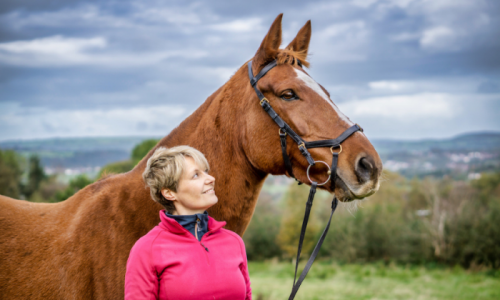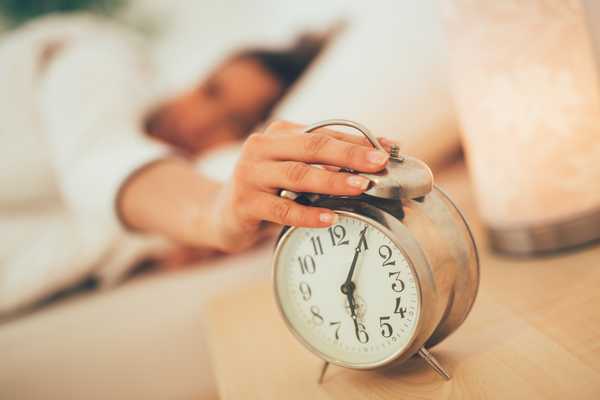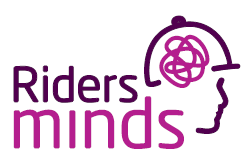
Do you have morning anxiety?
Dr Tracey Cole is one of the UK’s leading equestrian-focused NLP and Hypnosis Trainers and Master Coaches. Tracey is also a keen equestrian and former nervous competitior, she loves to help riders of all levels combat their nerves and ride to the best of their ability.
Thank you to Tracey for sharing her thoughts and advice on morning anxiety.
As riders, we have a lot on our minds. Whether it’s all about the horse’s well-being, the riding, the competing or, at professional levels, the added concerns about budgets and owners. It’s quite natural and normal to wake up feeling a little anxious if the day ahead is one that could be challenging.
It’s quite another thing, however, to wake up feeling anxious, having terrible dread or panic when there is no known cause. Morning anxiety, whilst not a clinical condition, is a real thing. Some of the symptoms include:
- Irritability
- Fatigue
- Panic attacks
- Restlessness
- Inability to become calm
- Intrusive negative thoughts
- Feelings of overwhelm
Sometimes, as with all mental health issues, it helps to unpack and understand the mechanisms behind our mental stresses.
Why do some people feel anxious in the mornings?
Our hormonal systems fluctuate and some like the stress hormone, cortisol, have a daily rhythm. The natural peak in cortisol levels is in the morning, approximately 30-45 minutes after waking. It’s a normal response to wakening known as the cortisol awakening response (CAR); in some cases, our minds misinterpret this process as a sign of danger.
During the CAR, heart rate increases, as does blood flow and adrenaline levels, which can all contribute to the feelings of anxiety, worry and dreaded vulnerability.

Experiencing morning anxiety could be caused by other factors. The most important one to discount is Generalised Anxiety Disorder (GAD).
Could it be Generalised Anxiety Disorder (GAD)?
This type of anxiety occurs at any time and you may be experiencing it as a morning event. Very often, I hear riders say the worst times for generalised anxiety, anxiety that has a non-specific root cause, are just before they go to bed and when they get up in the morning.
Not getting enough sleep, or having insufficient deep sleep, can cause a spike in cortisol that results in fatigue and possibly morning anxiety too. The anxiety may or may not dissipate as the day progresses.
GAD is a broad-range and chronic type of anxiety that persists for more than 6 months. If you fall into this category, please do see your GP or find a therapist to help you. You’ll be glad you did.
What to do about morning anxiety
Get a morning routine that feels good. It doesn’t have to mean early starts and meditation, although it might do. Choose a routine that you like. Here are a few ideas on what to add/take away from your first waking moments.
Get a good night’s sleep
Avoid staying up until you’re falling asleep, as a night-owl, I sympathise with this one! A restful night’s sleep is easier said than done if you struggle to drop off easily. Look into hypnosis or sleep hygiene routines if need be.
During sleep, the brain’s cerebrospinal fluid washes the brain, in gentle pulsating waves and removes waste materials. This is an essential function of sleep, it aids memory and cognition.
Avoid staying in bed
Staying in bed with the negative thoughts racing around in your head can reinforce those thoughts – so get up, no matter how difficult and undesirable it seems!
Have an intentional activity planned every morning
You may like to practise yoga, tai chi or Pilates, go for a mindful walk or do some stretching. Activity distracts the mind, but also stimulates an outpouring of feel-good chemicals such as endorphins, serotonin and the anti-anxiety neurotransmitter, gamma aminobutyric acid (GABA).
Exercise also activates the frontal regions of the brain, the CEO part, which dampens the anxiety-inducing amygdala. Done regularly, it promotes greater resilience and is therefore an effective protection against anxiety.
Decide on a calming activity
Meditation or writing can calm the mind and relieve the stress. Journaling in a ‘worry journal’ where you write down everything that is swimming around inside your head. This can release you from the need to be thinking about everything. Journal too on a priority list by placing tasks into one category from do, delay, delete and delegate category.
A gratitude journal works well too. List what you want to feel or have. Then list all the ways in which you already have that in your life. E.g., if you want happiness, journal on all the things you already have that make you happy, from sunsets to the car starting without a hiccup.
Test out a screen-free hour after you wake up. Avoid emails and social media. This may make all the difference!
Have a good breakfast
Low blood sugar can cause anxiety, so breaking your fast is really important. Having said that, a sugar overload is a no-no. High amounts of sugar causes the release of insulin, which can clear blood sugar a little too efficiently, giving you the very temporary boost, then a nose dive in sugar concentration.
If you can, limit the amount of caffeine you consume too – sorry! As a reformed tea drinker, I know this can be hard! Choose decaf tea or other alternatives. Stay hydrated; none of this will be new to you, but our bodies weren’t designed for the type of diets we all fall prey to – high sugar and high caffeine and too little water and these can cause physiological stress as much as mental ones.
Set a time for anxiety
The unconscious mind will follow your instructions and serve you well, but it does need those instructions, otherwise it carries on regardless and maintains your anxiety. One way to limit anxiety is to set a kitchen timer or your phone timer and decide to have only 5-10 minutes of anxiety.
For 5-10 minutes, you can trick your mind by distracting activities such as naming 5 things you can see, 5 things you can hear, 5 things you can feel; then another 4 things you can see, 4 things you can hear, 4 things you can feel; another 3 things you can see, 3 things you can hear, 3 things you can feel and so on!
Outside of this timed anxiety, you have to tell yourself, loudly and firmly to “STOP!” each time the anxiety bubbles up.
In summary, the way out of the morning anxiety routine is to override it with a different routine. Experiment! Find out what works for you and remember that feeling of calmness and well-being to keep you motivated to continue the new way of doing mornings!
If you would like to find out more about Tracey or are interested in working with her, you can find out more here.
If you need support
Live text support:
07480 488 103
Call the helpline:
0800 088 2073
Or use the webchat button.




